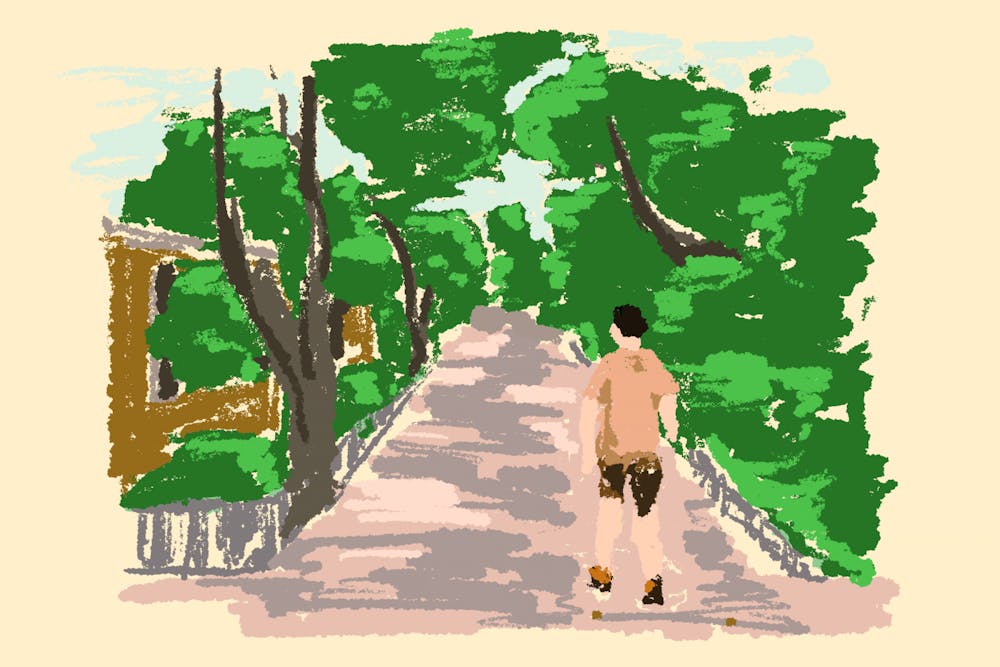COVID–19 isn’t the only virus that’s infiltrating homes across the world. Social anxiety, mostly brought about by being unable to see our friends in person for weeks on end, is spreading at a comparable rate. Symptoms include discomfort in social situations, overthinking your own actions post–interaction with another, and so–called “friendship phobia.”Just like COVID–19, the cure is still surrounded by giant question marks.
It seems like isolation should have been a golden situation for those with a tendency towards social anxiety already–fewer social situations equals less social anxiety, right? But isolation has pushed us into more and more unnatural social situations in our attempts to cling on to normalcy, whether that’s on Zoom or in person, masked up and spaced an awkward six feet apart. Feeling tense or uncomfortable in social situations wasn’t necessarily an unfamiliar concept before the pandemic, but the combined decrease in number of interactions and increase in awkwardness caused by social distancing procedures has caused this sensation to skyrocket amongst those of us stuck at home and, perhaps somewhat surprisingly, students on campus.
“In terms of my social life, I think the only distinction I can really make because I’m a [first-year] and I don’t have anything else to compare it to, is just a reasonable sense of unease and caution towards socializing in general—just trying to convince myself that I don’t need to be the most social person during this time, especially since we’re in a pandemic, and … even the idea of hanging out with 10 people is terrifying,” said Deborah Olatunji (C'24), who is currently living on campus.
Interactions during quarantine are naturally a little clumsy and inelegant at best: we struggle to hear people through their masks, think “was that weird?” after catching up with a friend, or awkwardly avoid eye contact when we pass by acquaintances, thinking (or maybe hoping) they won’t recognize us with a mask on. And the longer we go without regular social interaction, the more confusing and stressful navigating these social situations becomes.
“There’s just something about wearing a mask—you can’t take it off other than when you’re eating, and you can still talk, of course, still have a conversation with people, but the realities of the pandemic are just so present when you’re having to distance and wearing a mask. It’s almost like you can’t escape that when you’re trying to socialize safely in person,” said Olatunji.
It doesn’t help that we’re collectively spending more time than ever on social media, giving us access to curated, polished, Photoshopped, and FaceTuned content that leads us to believe that everyone else is coping better than we are. No matter how many times we tell ourselves that sometimes it’s okay to spend a day trudging from our desks to the kitchen and back in our pajamas, it’s hard to believe after seeing picture after picture of flawless work–from–home setups and mouthwatering meal preps; this doubt can translate far too easily into anxiety in interactions with friends and acquaintances.
But luckily, the rise in the number of people experiencing discomfort in social situations means that there’s been a lot more active thinking and discussion going on about it. We’ve become more aware of the fact that social anxiety can too easily slip into the realm of social anxiety disorder, when discomfort surrounding social situations turns into irrational fear, but we’re also exploring the other end of the spectrum: how to alleviate anxiety before, during, and after social interactions.
Nearly all strategies to deal with social anxiety hinge on having an active mindset and using it to shift your own attention, usually away from yourself. Now more than ever, we hyper–focus our attention on our own performance during an interaction, scrutinizing it and overanalyzing it until we’ve picked out everything that’s already gone wrong and stressed ourselves out about things that could potentially go wrong over the course of the conversation. Shifting your focus away from yourself and towards the person you’re talking to serves a dual purpose; it prevents you from doubting your own words and actions, and helps you engage better with the other person, creating an overall more enjoyable and more productive situation for everyone involved.
Other strategies include setting yourself up to focus on the present rather than worrying about future and past social situations that you can’t prepare yourself for, and mindfully reducing your own negative judgement of yourself and others in the moment.
We can only hope that the pandemic situation will get better, but in the meantime, actively thinking about how we can resolve our own social anxiety by shifting the spotlight away from ourselves can only make our future social interactions, during and post–quarantine, more pleasant.

